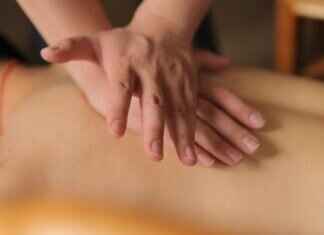Indian Prime Minister Narendra Modi’s recent visit to Washington, D.C. has set the stage for a new era in U.S.-India relations under the current Administration. With India being one of the world’s oldest civilizations and the largest democracy, boasting a population of 1.4 billion and the fifth-largest economy globally, the significance of this bilateral relationship cannot be overstated. As China seeks to assert its dominance in the Indo-Pacific region, the outcome of U.S.-India ties in the coming years will have far-reaching implications for security, prosperity, and geopolitical dynamics in South and East Asia.
The Impact of Indian Americans in Los Angeles
While much attention is often placed on the roles of political leaders like Donald Trump and Narendra Modi in shaping diplomatic relations, it is essential to recognize the crucial role played by the Indian American community in fostering and strengthening ties between the two nations. Congresswoman Sydney Kamlager-Dove, representing California’s 37th District, sheds light on how Indian Americans in Los Angeles contribute significantly to the local landscape, enriching various sectors with their talent, expertise, and cultural heritage.
A Vibrant Tapestry of Contributions
With over 200,000 Indian Americans calling Los Angeles County home, the contributions of this community are woven into the fabric of the city’s diverse tapestry. From advancements in technology, engineering, healthcare, and creative industries to enriching cultural exchanges, Indian Americans have left an indelible mark on the region. The vibrancy of places like Little India in Artesia, with its bustling economic and cultural scene, and culinary delights like the Gujarati Thali at Jay Bharat, exemplify the richness of Indian American influence in Los Angeles.
Advocating for Community Needs
As the Ranking Member of the House Foreign Affairs Subcommittee on South and Central Asia, Congresswoman Sydney Kamlager-Dove has made it her mission to advocate for the interests and well-being of the Indian American community in Los Angeles. From pushing for the establishment of an Indian consulate in the city to addressing visa interview wait times and concerns about transnational repression, she is dedicated to ensuring that the community’s needs are met and their voices heard on the national stage.
Looking Towards the Future
Prime Minister Modi’s recent visit serves as a catalyst for a promising new chapter in U.S.-India relations, with opportunities for growth in trade, defense, and people-to-people connections on the horizon. As Congresswoman Kamlager-Dove navigates her new role to enhance collaboration and cooperation between the two nations, she remains committed to serving her constituents and fostering a strong, enduring partnership with one of America’s key allies.
In conclusion, the engagement and involvement of the Indian American community in Los Angeles underscore the mutually beneficial nature of the U.S.-India relationship. As both countries navigate a changing geopolitical landscape, the bonds forged by individuals at the grassroots level will continue to be instrumental in shaping the future of this vital partnership.
































